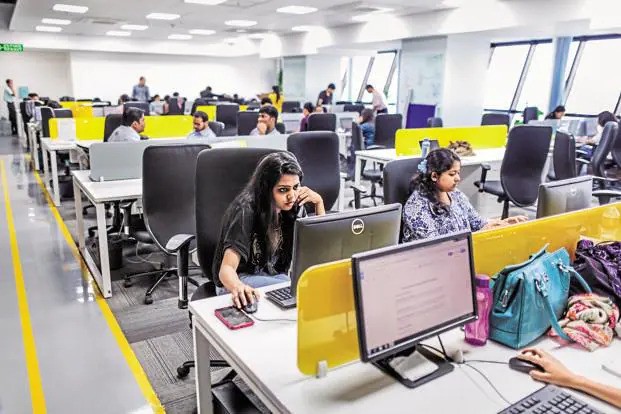Long hours do not guarantee higher productivity

Larsen & Toubro (L&T) chairman S N Subrahmanyan’s comments made during an employee interaction and shared on Reddit, advocating for 90-hour workweeks and work on Sundays created a furore in social media.
Among the netizens who criticised him on social media, RPG Group chief Harsh Goenka had to offer a witty repartee. “90 hours a week? “Why not rename Sunday to ‘Sun-duty’ and make ‘day off’ a mythical concept!” Goenka wrote on X. “Working hard and smart is what I believe in, but turning life into a perpetual office shift? That’s a recipe for burnout, not success…Work smart, not slave,” he added.
The dust stirred by Murthy’s comments had not settled when the country saw the tragic death of 26-year-old Anna Sebastian Perayil in 2024. Discussions on exhaustive and toxic work environments and the need for proper work-life balance once again came to the fore.
While Murthy urged for a 70-hour week and Subrahmanyam for a 90-hour week, International Labour Organisation in a report a few months back found that India is one of the most overworked countries globally, with its workforce putting in long hours per week.
According to ILO, the majority of Indians – 51 per cent – work for 49 hours weekly. This put India in the second spot in the list of countries which make its employees work for long hours.
However, in some of the highly developed countries like Germany the working hours are as low as 34.2 hours per week, Japan 36.6 hours, and Singapore 42.6 hours.
While the studies usually take note of the time an employee stays at office as work hours, the long commuting time to the workplace is not considered. The long hours spent in traffic snarls snatches away the little time left for personal life.
“The city I live in, Bengaluru, remains the traffic-delay capital of India. In 2023, the average Bengaluru commuter spent 257 hours on road during peak hours, 132 of these due to acute congestion. As of September 30, 2023, Bengaluru had 1.1 crore registered vehicles to cater to a population of 1.4 crore people. These registered vehicles use a finite stretch of 14,000 km,” said brand expert Harish Bijoor.
While making his controversial statement, Murthy had said that India’s work productivity is one of the lowest in the world. “Unless we improve our work productivity… we will not be able to compete with those countries that have made tremendous progress.”
However, studies show that long hours employees spend on work and commuting to work do not improve productivity.
A study by Stanford University found that productivity declines when individuals work more than 49 hours in a given week. This decline increases after 55 hours of work that working anymore would be pointless, and employees who work 70 hours get the same amount of work done as those working 55 hours.
The World Health Organization (WHO) also finds that working long hours leads to an increased risk of cardiovascular diseases by 42 per cent, stroke by 19 per cent and mental health issues, including burnout. Employees who work overtime are also more likely to have an injury or accident due to fatigue.
Another study by the National Institutes of Health in the US noted that employees in jobs with overtime schedules had a 61 per cent higher risk of injury. Employees who work overtime engage with others less than employees who maintain a better work-life balance and this leads to issues, including lower morale, lower job satisfaction and reduced productivity.
ILO finds that Indians are engaging in extra hours at work for lower wages and it ranks low in terms of productivity. Considering India’s GDP of $3.73 trillion, its GDP per hour worked is low at $8, placing it 133rd globally in terms of productivity.
“Despite working for long hours, India is low on productivity globally. This clearly shows that long hours of work and commute do not guarantee productivity. I have worked for long hours in the past, but that is not sustainable and I do not advise the younger generation to do so as the enablers and tools available today is far better than my times,” said Rituparna Chakraborty, independent director on various boards.
